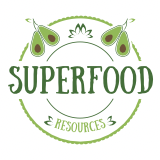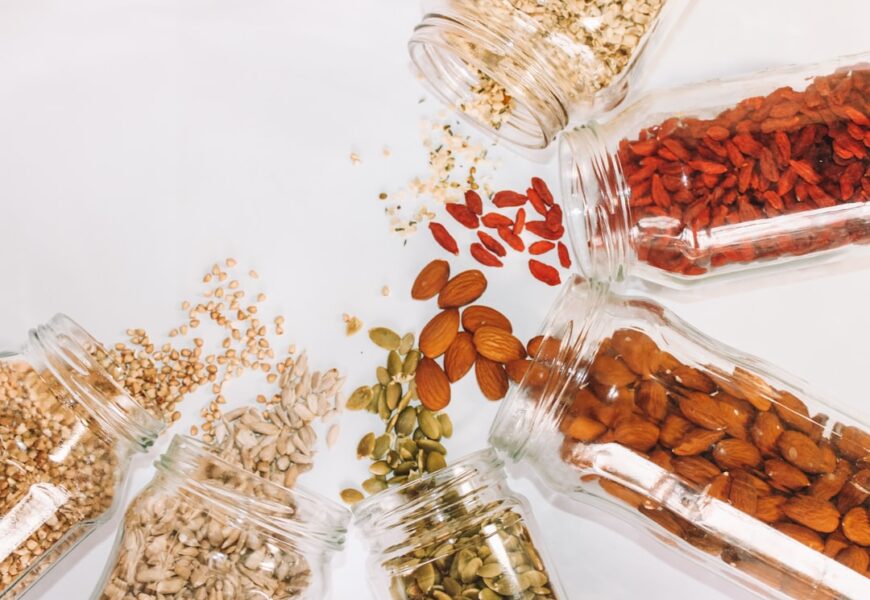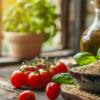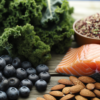Key Benefits of Including Superfoods in Your Diet
Introduction
Welcome to the vibrant world of superfoods! Packed with vitamins, minerals, and antioxidants, these nutritional powerhouses are your ticket to improved health and vitality. Incorporating a variety of these nutrient-dense foods into your daily diet can lead to noticeable health benefits, including enhanced energy levels, improved immune function, and better overall wellness. Aiming to diversify your plate with colors, textures, and flavors, superfoods are indeed nature’s gift for your health. Join us as we explore essential superfoods that deliver maximum nutritional benefits and learn how each can fit seamlessly into your lifestyle for a healthier, happier you.
The Importance of Superfoods in a Healthy.
Definition of superfoods
Superfoods are primarily plant-based, but also some fish and dairy qualify. They’re thought to be nutritionally dense and thus good for one’s health. Blueberries, salmon, kale, and acai are just a few examples of foods that have garnered the “superfood” label. There isn’t a specific set criteria defining what makes a food superfood, but they are generally packed with vitamins, minerals, antioxidants, and other nutrients that can enhance your well-being.
Overview of why superfoods are essential for health
Superfoods are crucial for a healthy diet because they fill your meal plan with minerals, vitamins, and antioxidants that offer profound health benefits. Consuming a variety of these foods can help improve your heart health, weight management, energy levels, and even reduce the effects of aging. Antioxidants found in many superfoods help combat free radicals—molecules that can damage your cells. Including superfoods in your diet can help you maintain better health, and potentially prevent various diseases.
Top 10 Superfoods to Include in Your Diet
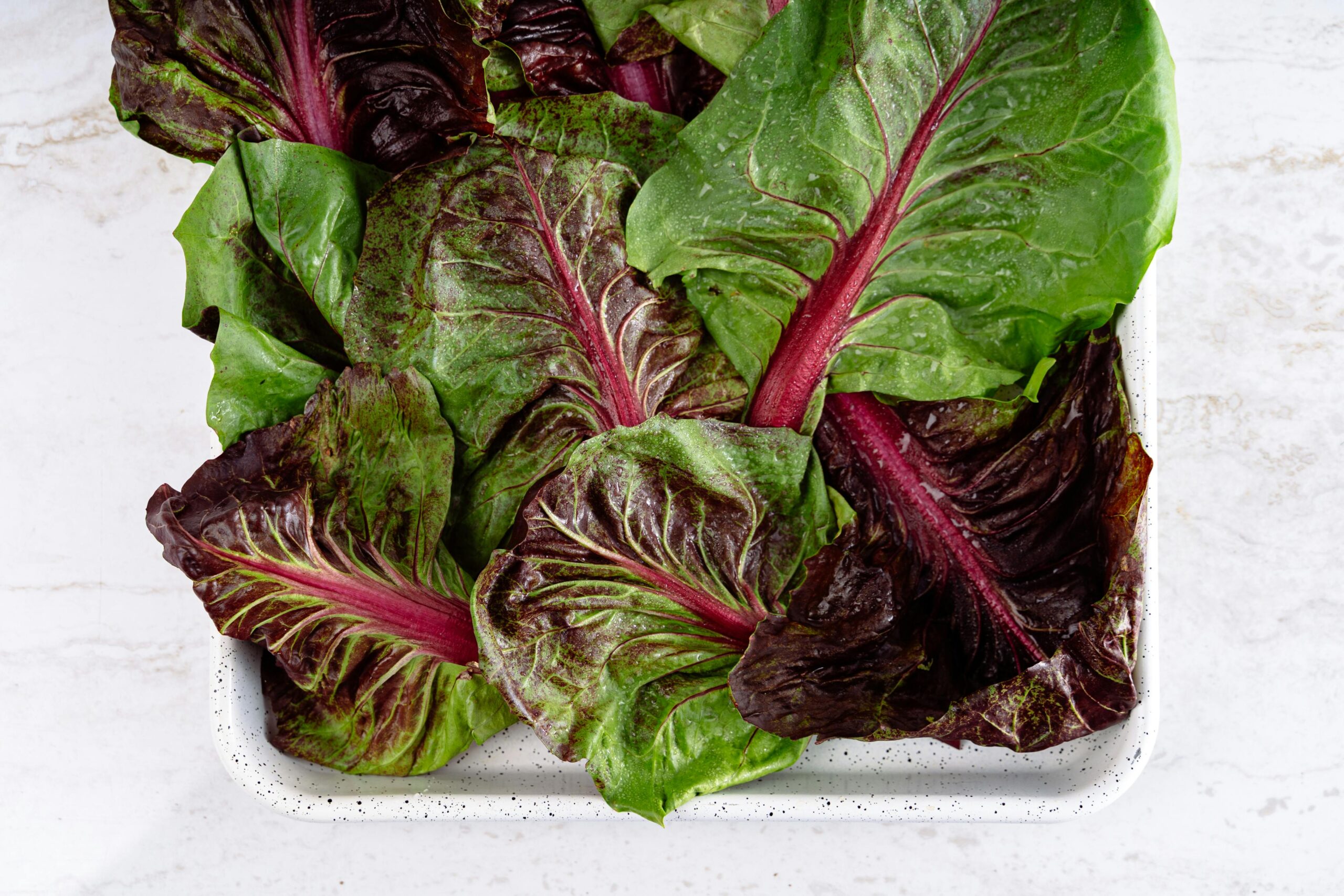 Image courtesy: Pexels
Image courtesy: Pexels
Blueberries
Blueberries are tiny but mighty. Packed with antioxidants and phytoflavinoids, blueberries are also high in potassium and vitamin C, making them the top choice among doctors and nutritionists. Not only can they lower your risk of heart disease and cancer, but they are also anti-inflammatory. The versatility of blueberries makes them easy to incorporate into your diet, whether in smoothies, salads, or just on their own.
Spinach
This leafy green is a nutritional powerhouse, offering high amounts of carotenoids, vitamin C, vitamin K, folic acid, iron, and calcium. Spinach’s role in bone health, improved digestion, and preserved eye health makes it a staple for anyone looking to enhance their diet. It’s incredibly easy to add spinach to your diet as it can be eaten raw or cooked and included in a variety of dishes from soups to salads, and smoothies.
Quinoa
Quinoa is known for its high protein content, and it contains all nine essential amino acids. It is also rich in fiber, magnesium, B vitamins, iron, potassium, calcium, phosphorus, vitamin E and various beneficial antioxidants. Quinoa is a great alternative to carbs like white rice or pasta for those looking to manage their weight or blood sugar levels. Its nutty flavor and easy preparation make it popular in salads, soups, and as a side dish.
Avocado
Avocado is unique because it’s a fruit that’s rich in healthy fats, particularly monounsaturated fat, which helps to lower bad cholesterol levels. It’s also packed with fiber, vitamins E, C, K, and B-6, as well as riboflavin, niacin, folate, pantothenic acid, magnesium, and potassium. They’re incredibly beneficial for heart health and very filling, which helps to reduce appetite and aid in weight loss.
Chia seeds
Chia seeds are an excellent source of omega-3 fatty acids, rich in antioxidants, and they provide fiber, iron, and calcium. Omega-3 fatty acids help raise HDL cholesterol, the “good” cholesterol that protects against heart attack and stroke. Chia seeds are a versatile ingredient that can be eaten raw, soaked in juice, added to porridge, puddings, and baked goods, making them easy to incorporate into your daily routine.
Kale
Kale is one of the most nutrient-dense foods on the planet, loaded with vitamins A, K, C, B6, manganese, calcium, copper, potassium, magnesium, and antioxidants like quercetin and kaempferol. These nutrients help fight oxidative damage, assist in lowering blood pressure, and may reduce the risk of chronic diseases. Kale can be enjoyed in smoothies, salads, soups, or even as a tasty baked snack.
Salmon
Salmon is rich in omega-3 fatty acids, which are essential for brain health and reducing inflammation. It’s also an excellent source of protein and B vitamins, which can contribute to improved cardiovascular health and aid in energy production. Salmon can be grilled, baked, or smoked, and fits beautifully into a balanced diet.
Sweet potatoes
Sweet potatoes are high in fiber, vitamins A, C, and B6, and rich in carotenoids that are excellent for eye health. They’re also a unique source of manganese and potassium. Their naturally sweet taste and high fiber content help with blood sugar regulation, making them a great food for sustained energy.
Greek yogurt
Greek yogurt is packed with probiotics, which are good for your digestive system. It also has more protein than regular yogurt, making it an excellent food for muscle repair and growth. It’s also a good source of calcium and vitamin B12. Greek yogurt’s thick, creamy texture makes it a delicious base for a parfait, sauces, or simply enjoyed with a sprinkle of granola.
Green tea
Green tea is famed for its antioxidants, particularly catechins, which can help reduce oxidative stress and inflammation. It’s also beneficial for heart health and fat loss, making it a must-add to your daily regimen for its health-promoting properties. Whether you drink it hot or iced, adding green tea to your day can provide a refreshing and revitalizing boost.
Health Benefits of Incorporating Superfoods
 Image courtesy: Pexels
Image courtesy: Pexels
Eating superfoods isn’t just a trendy habit; it’s a potent way to enhance your overall wellness. Packed with vitamins, minerals, antioxidants, and other nutrients, these foods offer a bevy of health benefits that can impact your body positively from the inside out.
Boosting Immune System
The immune system acts as the body’s defense against infectious organisms and other invaders. Incorporating superfoods like berries, garlic, ginger, and spinach can bolster this defense. For instance, blueberries are rich in antioxidants that play a key role in improving your immune response. Garlic, on the ofher hand, contains compounds like allicin, which is known for its immune-enhancing properties. These foods help stimulate the production of immune cells and decrease inflammation, making it easier for your body to fight off illnesses.
Improving Heart Health
Heart health can significantly benefit from the right superfoods. Foods such as oats, salmon, and avocados contain omega-3 fatty acids, fiber, and healthy fats that contribute to heart health. Oats help in lowering cholesterol levels in the body due to their high soluble fiber content. Salmon, rich in omega-3 fatty acids, can reduce blood pressure and keep clotting at bay. Avocados offer heart-healthy monounsaturated fats that decrease the risk of heart disease and stroke. Regular inclusion of these superfoods in your diet can lead to better heart health and a reduced risk of cardiovascular disease.
Enhancing Skin and Hair Health
For those looking to improve their skin and hair health, superfoods can be miraculous. Foods like almonds, sweet potatoes, and kale are champions in this category. Almonds are loaded with vitamin E, which protect skin from the damaging effects of free radicals. Sweet potatoes boast high levels of beta-carotene, which converts to vitamin A and helps repair skin elasticity. Kale, the powerhouse of vitamins A, C, and E, supports skin health and stimulates hair growth. Regular consumption of these foods not only contributes to healthy, glowing skin but also ensures lustrous hair.
Tips for Adding Superfoods to Your Dear Meals
Adding superfoods to your diet doesn’t have to be complicated or time-consuming. With a few simple recipes and meal ideas, you can effortlessly incorporate these nutrient-packed foods into your everyday eating habits.
Smoothie Recipes
Smoothies are a fantastic way to pack multiple superfoods into a single, delicious drink. Try a breakfast smoothie with a blend of spinach, blueberries, banana, and almond milk. Not only is this combination rich in vitamins and minerals, but it also provides a refreshing and energizing start to your day. For an added boost, toss in a tablespoon of chia seeds or a scoop of protein powder to make your smoothie even more nutritious.
Salad Ideas
Salads offer a versatile way to enjoy a variety of superfoods all at once. Mix kale, avocado, quinoa, and walnuts for a salad rich in nutrients. Dress it with a light vinaigrette made from olive oil and lemon juice to enhance the flavors. Adding elements like pomegranate seeds or sliced strawberries can introduce a fresh, fruity twist to your meal while bumping up the nutritional value.
Snack Options
For snacks, simplicity often trumps complexity. Instead of reaching for processed foods, opt for raw nuts, seeds, or yogurt topped with fresh fruit and a sprinkle of flax seeds. These snacks are not only nutritious but also inherently portable and convenient for busy lifestyles. Alternatively, baked kale chips seasoned lightly with salt can satisfy crunchy cravings without the guilt typically associated by chips.
Conclusion
Incorporating superfoods into your diet can significantly enhance your overall health and wellbeing. These nutrition-packed foods offer a variety of benefits, from reducing the risk of chronic diseases to improving your energy and mental clarity. By making superfoods a regular part of your diet, not only do you boost your nutrient intake, but you also support sustainable, health-focused food choices. Start simple by adding a few superfoods to your meals and notice the positive changes in your health and life!
